If you’ve ever been diagnosed with depression or known someone who has, you’ve probably heard about the name “Wellbutrin.” It’s an antidepressant that’s gaining popularity for its unique approach to tackling the blues.
But here’s the kicker – have you ever wondered how exactly it fits into the world of antidepressants? Is it an SSRI, an SNRI or NDRI?
In this article, we are going to study the mystery of Wellbutrin’s classification as an SSRI, SNRI, or NDRI. You don’t have to be a genius in science to understand this!
We’ll break it down step-by-step, and by the end, you’ll have a crystal-clear understanding of how this little pill can help lift the weight off those struggling with depression.
So, let’s dive in and find out what makes this stand out in the world of antidepressants.
What is Depression?

Depression is more than just feeling sad; it’s a severe condition that affects how you think, feel, and handle daily activities. It can make life seem overwhelming and complicated.
People with depression may experience persistent sadness, lack of interest in things they used to enjoy, changes in appetite or sleep patterns, and even physical symptoms.
When it comes to treating depression, medications like Wellbutrin and SSRIs play a crucial role. Wellbutrin, while not classified as an SSRI, is an antidepressant that works differently by focusing on norepinephrine and dopamine.
Both Wellbutrin and SSRIs aim to help balance the chemicals in your brain that contribute to depression, giving you a better chance to feel like yourself again. It’s like having a supportive hand to help you through a tough time so you can start finding your way back to a brighter outlook on life.
Recognizing Depression: Common Symptoms to Watch For
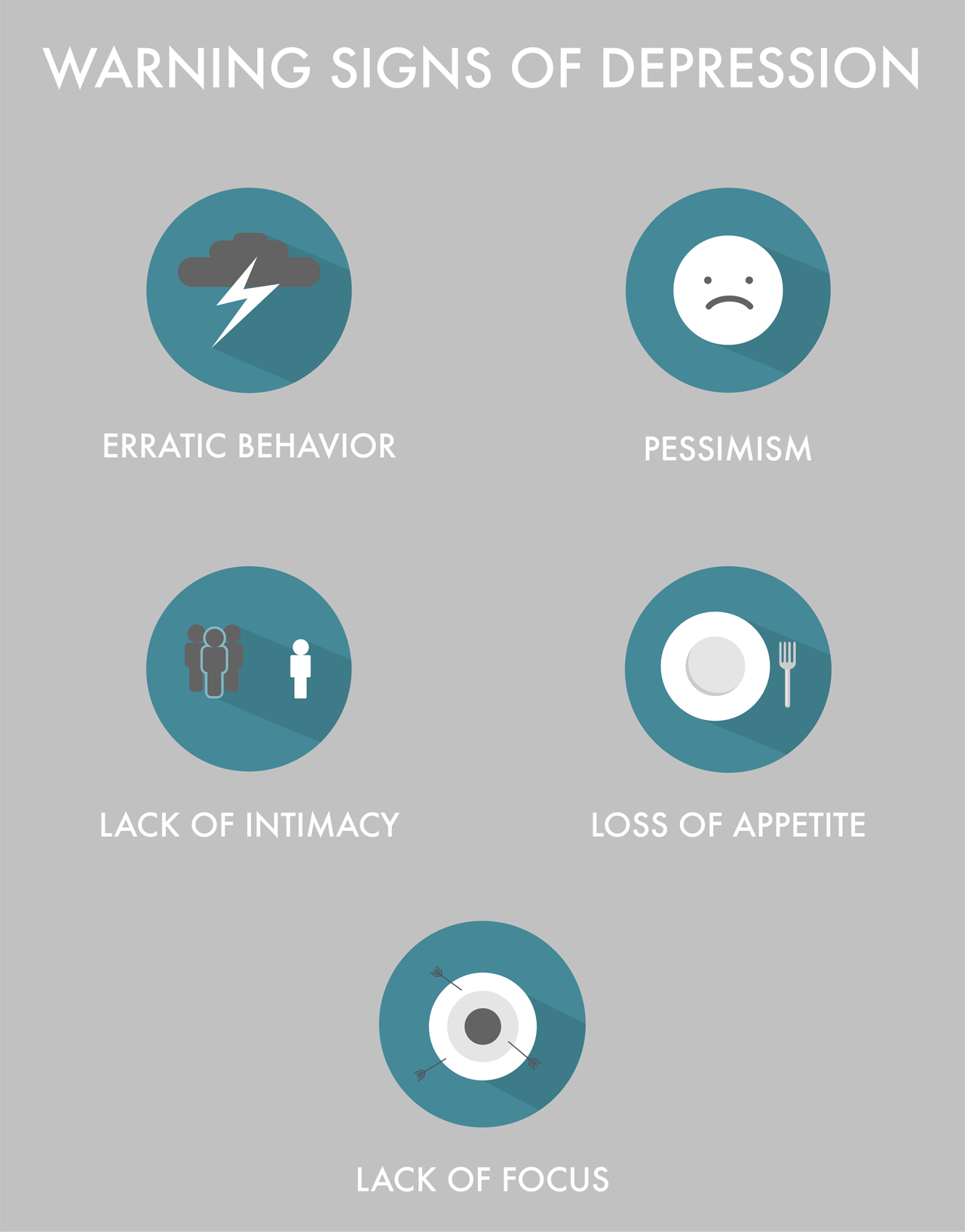
- Persistent Sadness: Feeling down most of the time, often without a clear reason, could cause depression.
- Loss of Interest: You might lose interest in things you used to enjoy, like hobbies or spending time with loved ones.
- Fatigue and Low Energy: Feeling tired all the time, even after rest, is a common sign.
- Change in Appetite: You may eat more or less than usual, leading to weight changes.
- Trouble Concentrating: Difficulty focusing or making decisions could be linked to depression.
- Sleep Disturbances: Insomnia or sleeping too much might indicate a problem.
- Feelings of Worthlessness: Negative thoughts about yourself and low self-esteem can be part of depression.
- Physical Aches: Unexplained headaches or body pains can affect your emotional well-being.
- Social Withdrawal: Pulling away from friends and family is a possible system.
- Suicidal Ideation: If you or someone you know has thoughts of self-harm, it’s crucial to seek help.
If you’re experiencing these symptoms, talking to a healthcare provider is a crucial step. They can guide you on the best course of action, including treatments like therapy, medications like Wellbutrin SSRI, or a combination of both. Remember, seeking help is a sign of strength, and you don’t have to face depression alone.
Understanding Antidepressants

Let’s start by unraveling the world of antidepressants before we dive into Wellbutrin’s unique classification. These medications are generally regarded as mood superheroes – they’re designed to help ease the weight of depression and tinkering with special brain chemicals known as neurotransmitters.
But here’s the thing: This antidepressant isn’t your typical caped crusader like an SSRI. It’s more of an independent thinker, focusing on neurotransmitters like norepinephrine and dopamine.
So, before we jump into the specifics of this antidepressant, let’s get cozy with the basics of how antidepressants work their magic.
What is Wellbutrin?

Let’s dive into the world of antidepressants, where Wellbutrin (bupropion) takes the spotlight. Unlike its peers that focus on serotonin or norepinephrine, it stands out as an aminoketone antidepressant with a distinct mechanism of action.
While SSRIs and SNRIs are like players in the serotonin and norepinephrine game, they play their melody, aiming at norepinephrine and dopamine.
This unique approach sets it apart from the usual SSRI class. So, if you’re curious about how this antidepressant does its magic, remember, it’s all about the NDRI – not your typical SSRI – making it a potential game-changer for those seeking a fresh path to managing their mental health.
Always consult your healthcare provider before making any decisions about your treatment journey.
Wellbutrin as an NDRI
Antidepressants come in various types, and it stands out as norepinephrine-dopamine reuptake inhibitor (NDRI). It ramps up norepinephrine and dopamine levels in the brain, key players in regulating mood, focus, and motivation.
Unlike the more common SSRIs, which mainly tackle serotonin, it takes a different approach, making it an intriguing alternative for individuals seeking relief from depression.
This unique mechanism is why it isn’t classified as an SSRI, but its impact on those crucial neurotransmitters offers a fresh perspective on treating mental health.
How Wellbutrin Differs from SSRIs and SNRIs
You’ve probably heard of SSRIs (Selective Serotonin Reuptake Inhibitors) and SNRIs (Serotonin-Norepinephrine Reuptake Inhibitors) – the more familiar guys on the block. But here’s the twist: they do their thing differently than Wellbutrin.
See, Wellbutrin isn’t your typical SSRI or SNRI. It takes a unique route to help tackle those mood blues. So, if you’re curious about how this sets itself apart from the usual suspects, buckle up – we’re about to uncover some antidepressant secrets!
What is the Role of SSRIs?
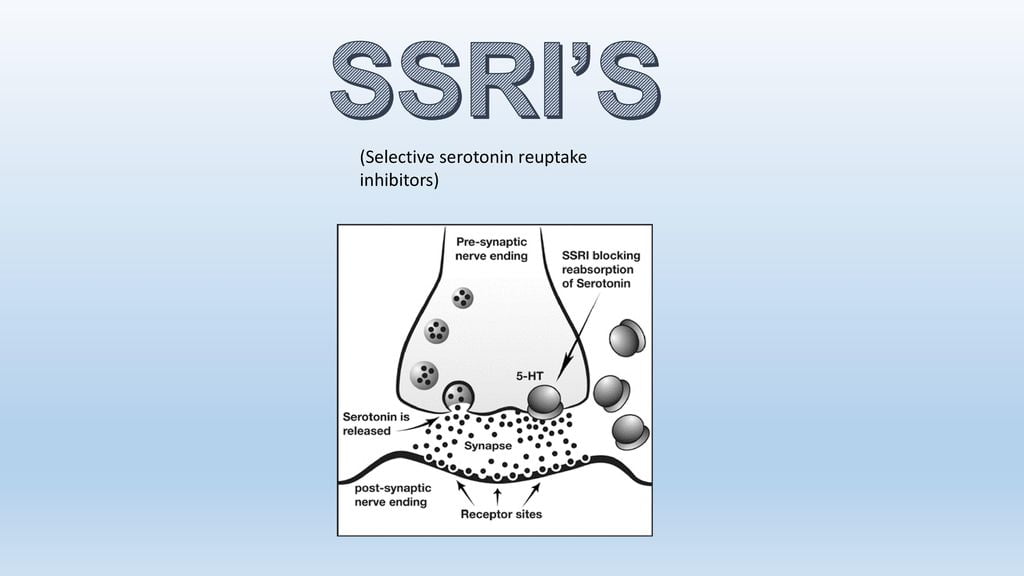
Let’s shed some light on the fascinating role antidepressants play in our mental well-being. When we talk about SSRIs, we’re talking about a special kind of antidepressant that has a thing for serotonin – a neurotransmitter that calls the shot on our mood, sleep, and appetite.
These SSRIs have a clear trick up their sleeves: they block the recycling process of serotonin, giving it more time to work its magic in the brain.
This boost in serotonin can work wonders, like giving our mood a lift and dialing down those pesky depression symptoms. So, when it comes to mood-boosting, think of SSRIs as the brain’s cheerleaders, waving their pom-poms and spreading those feel-good vibes.
Wellbutrin, on the other hand, doesn’t fall into the SSRI gang: it has its game plan as an NDRI, focusing on norepinephrine and dopamine, bringing its unique flair to the antidepressant party.
What is the Role of SNRIs
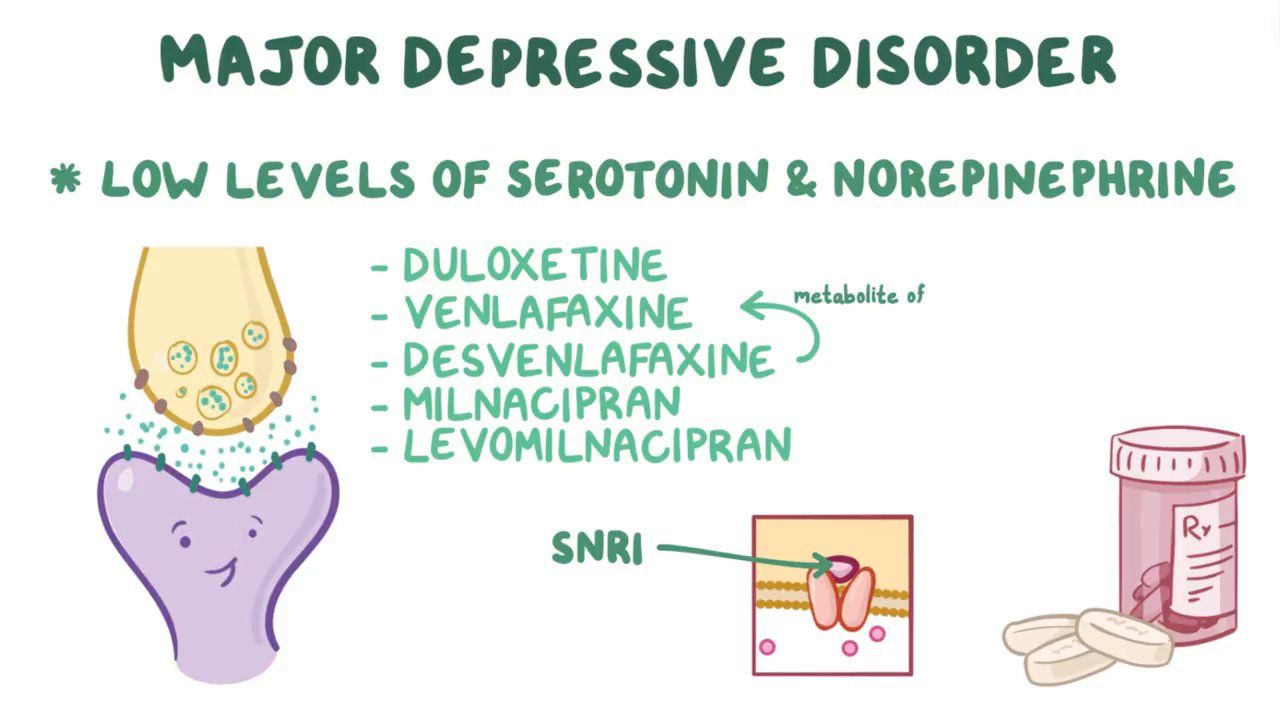
Let’s dig into SNRIs now; you see, SNRIs and SSRIs, like siblings in how they work, have a little difference. SNRIs, short for Serotonin-Norepinephrine Reuptake Inhibitors, are like the multitaskers of the bunch.
They not only tweak serotonin levels but give norepinephrine some attention. This dual action casts a broader net on mood improvement and might work even better for specific folks.
It’s a bit like having a two-in-one solution for your mood struggles. Bupropion, though not exactly an SNRI, follows a unique path by focusing on norepinephrine and dopamine, setting it apart from the more common players. This quirky approach has relieved many, offering a different angle for folks seeing a way out of the foggy depths.
‘Wellbutrin’ and its Unique Mechanism
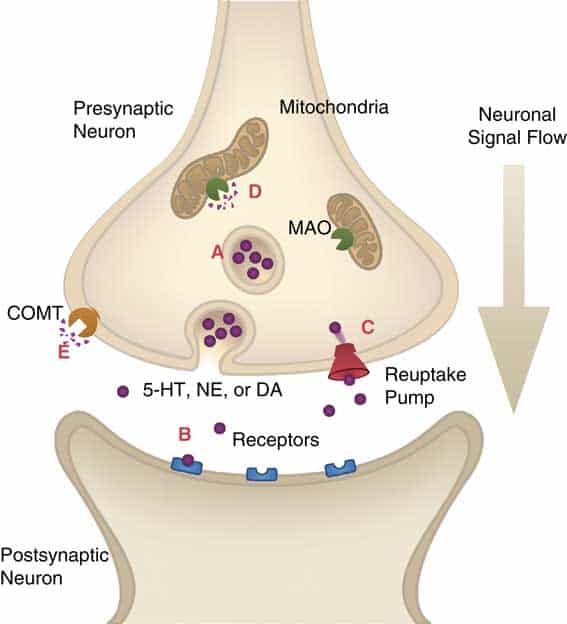
Alright, let’s break down how antidepressants work. You see, while SSRIs and SNRIs zoom in on serotonin and norepinephrine, this antidepressant takes a different path, honing in on norepinephrine and dopamine.
This cool twist sets it apart – it’s like a fresh approach in a world of antidepressants. This uniqueness gives hope to folks who might not have hit the right note with other meds or are grappling with some pesky side effects from them.
So, if you’ve been on the fence about this, knowing that it’s not your run-of-the-mill SSRI or SNRI might open up a new avenue of possibilities. Just remember, before you take the plunge, have a heart-to-heart with your doctor to determine if bupropion is the rhythm you’ve been looking for in your battle against the blues.
Effectiveness of Wellbutrin as an Antidepressant
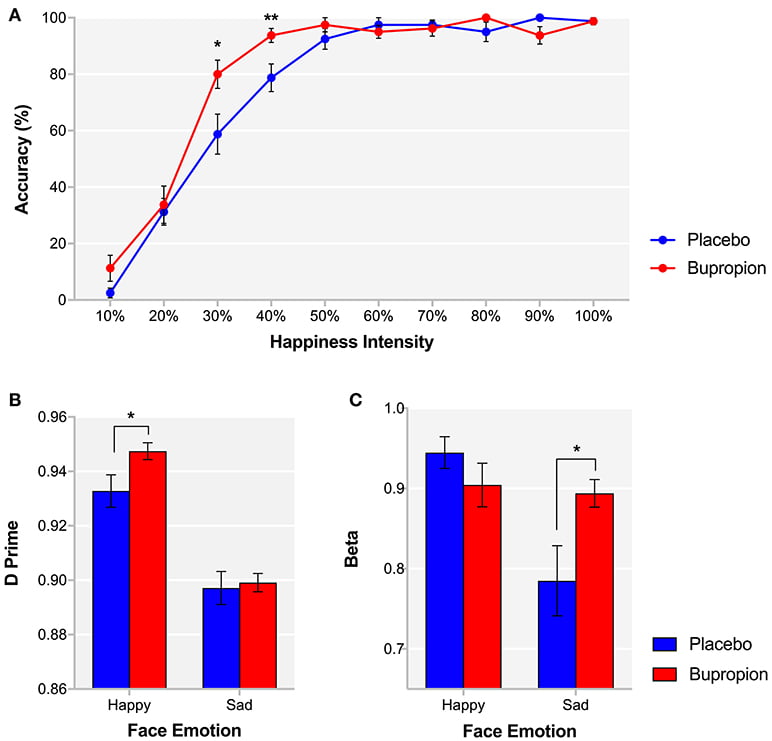
Regarding its role as an antidepressant, this antidepressant has proven its worth. Research reveals that it can match the effectiveness of various other antidepressants in managing depression. But here’s the catch – its results might dance to a different tune for each person.
See, our brain chemistry and the uniqueness of our condition play a starring role in this antidepressant drama. So, while it might be the hero you’re looking for, remember that its impact can wear different masks for different folks, depending on their brain’s backstage chemistry and the plot their condition has set.
Potential Side Effects of Wellbutrin
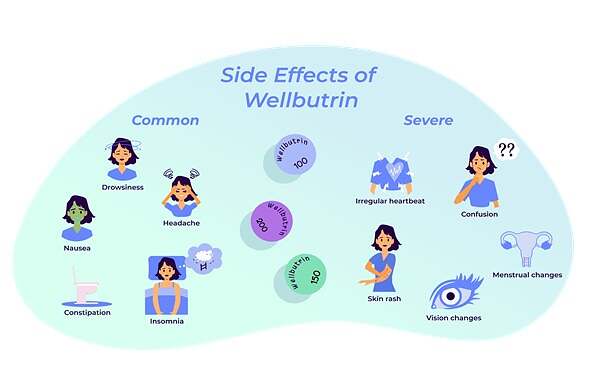
Just like any medication, Wellbutrin has its own set of potential side effects. The usual suspects are dry mouth, nausea, headache, and trouble sleeping. However, it’s important to note that in rare instances, a few folks might encounter more severe reactions like seizures or allergies.
Your health is the top priority, so if you’re considering giving it a shot, remember to chat with your healthcare professionals.
They’ll help you weigh the pros and cons and decide if this path suits you. It’s all about finding that balance between relief and any possible bumps in the road. Your journey to wellness with this is unique, so keep those lines of communication open with your doctor to make the most informed choices.
Precautions and Considerations Associated with Wellbutrin SSRI
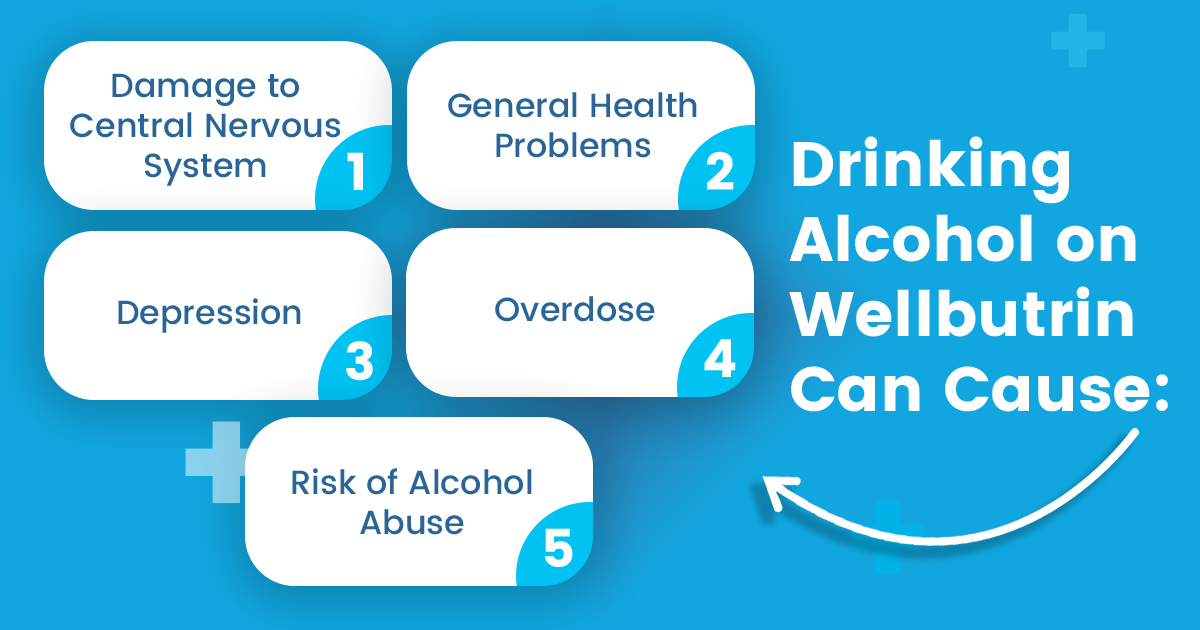
Before you begin talking about Wellbutrin, it’s really important to chat with a healthcare professional. They’ll look at your medical history, what meds you’re currently on, and any possible interactions to figure out if this antidepressant is a good fit for you.
Remember, your health expert’s guidance is like a compass, steering you toward the right decision and whether it’s the right path for your well-being.
Your safety and health are their top priority, so don’t hesitate to have that talk before embarking on your journey with this antidepressant. It’s like getting the rest of the best travel tips before a big adventure – your healthcare provider’s insights are your map to a smoother ride on the Wellbutrin SSRI road.
Conclusion
Wellbutrin, despite being a well-known antidepressant, is not classified as an SSRI. Instead, it falls into a unique category known as an NDRI. While SSRIs and SNRIs primarily target serotonin, it focuses on norepinephrine and dopamine, making them stand out from all the different class of antidepressants.
This distinction is crucial because it may offer an alternative solution for individuals who haven’t responded well to other medications or experienced unwanted side effects.
If you’ve been considering it as a potential treatment for depression, it’s essential to understand its classification and mechanism of action. Remember, always consult with your healthcare professional before starting any new medication.
They can help determine if it is a suitable option for you based on your unique medical history and condition.
Frequently Asked Questions
Does Wellbutrin Target Dopamine or Serotonin?
It primarily targets dopamine and norepinephrine, making it different from traditional SSRIs that primarily denote its attention toward serotonin, which is responsible for transferring messages from the brain to your body.
Are NDRIs Better than SSRIs?
Whether NDRIs are better than SSRIs depends on individual factors. Both classes of antidepressants have their strengths and may work differently for different people. NDRI-like bupropion can be effective for those who haven’t responded well to SSRI or experienced certain side effects.
Is Wellbutrin Stronger than SSRI?
Wellbutrin, classified as an NDRI, has a different mechanism of action compared to traditional SSRIs. While both types of antidepressants can be effective, their strength can vary depending on individual responses.




